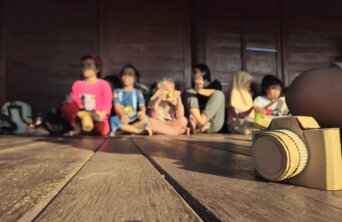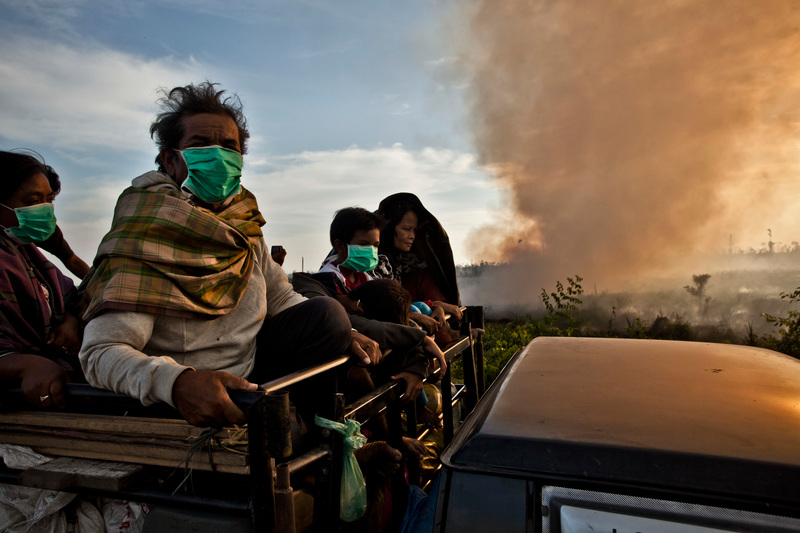- About
- Topics
- Picks
- Audio
- Story
- In-Depth
- Opinion
- News
- Donate
- Signup for our newsletterOur Editors' Best Picks.Send
Read, Debate: Engage.
| topic: | Freedom of Expression |
|---|---|
| located: | Indonesia |
| editor: | Leo Galuh |
On a bright afternoon in North Jakarta, excitement and hope filled the air as around 60 children attended a photography class. This young generation strongly desires to become journalists to safeguard democracy in the country.
Despite the threat of entering the dark era for the Indonesian press due to the controversial broadcasting bill, a grassroots movement optimistically introduces journalism to these kids. One of Jakarta’s senior photojournalists has provided free photojournalistic training for kids in the coastal area of North Jakarta since 2018.
Syamsudin Ilyas, the founder of Kelas Jurnalis Cilik (Young Journalists’ Class), invites his journalist colleagues to share their knowledge and skills with the children once a week for four months.
In the first month, the kids learn writing and reportage techniques. In the second month, they practise in the field using cardboard cameras with holes cut in the middle. They go photo hunting in their neighbourhood in the third and fourth months. Finally, in the fifth month, they will showcase their photos and essays in an exhibition, Ilyas told Fair Planet.
The kids are encouraged to use their creativity and critical sense to capture the reality of the coastal area in North Jakarta, highlighting its dirtiness, scattered rubbish, the smell of salty fish and anchovies, and poverty. Their pure and honest work can reveal the harsh truths or even inspiring stories of their ghetto to the world.
This learning-by-doing style, as Kelas Jurnalis Cilik shows, is essential. The children can exercise their awareness and start a conversation with the source, and their work will drive positive change.
According to Ilyas, the children’s work upsets the local government of North Jakarta. Officials worry that the slums in their area will attract media attention. The government pressured Ilyas not to hold the journalism class in Cilincing, North Jakarta, but he remained steadfast.
A 2024 analysis by Reporters Without Borders showed that press freedom in the Asia-Pacific region has worsened, with 26 out of 32 countries seeing their scores decline in the 2024 World Press Freedom Index. It includes Indonesia, which ranks 111th out of 180 countries.
A free press is crucial for a functioning democracy, preventing corruption by informing the public and monitoring government actions. It also provides a platform for all voices, representing minorities and exposing societal issues.
Image by Leo Galuh.

